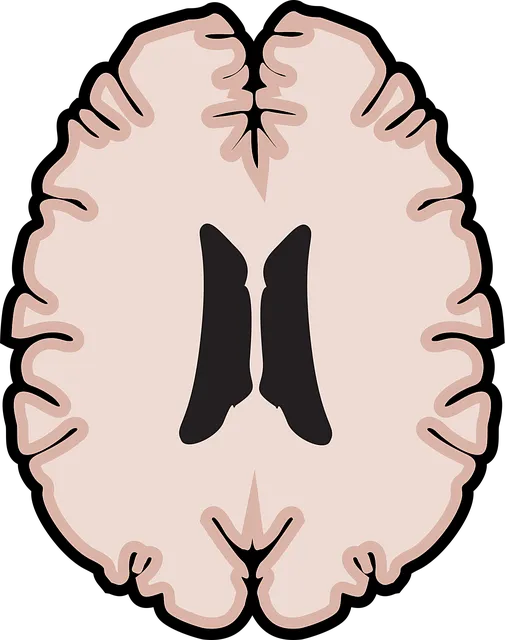Broomfield Kaiser Permanente prioritizes mental wellness, offering personalized Mental Wellness Coaching Programs. These programs utilize CBT, mindfulness, and structured curricula to develop resilience, self-awareness, and coping strategies. Combining therapy, support groups, and workshops, their holistic model fosters community and compassion. A multi-faceted evaluation system tracks progress while podcast series and journaling exercises remain current with best practices, ensuring exceptional mental health support tailored to each client's needs.
Mental wellness coaching programs are gaining prominence as essential tools for fostering holistic well-being. This article explores the growing need for such initiatives, particularly examining Broomfield Kaiser Permanente’s innovative mental health services model. We delve into designing effective curricula, leveraging best practices and strategies, and discuss measurement techniques to ensure success. By highlighting these approaches, we aim to inspire organizations to enhance employee mental wellness, mirroring Broomfield Kaiser Permanente’s proactive approach.
- Understanding the Need for Mental Wellness Coaching Programs
- Designing Effective Coaching Curricula: Best Practices and Strategies
- Implementing Broomfield Kaiser Permanente's Mental Health Services Model
- Measuring Success: Evaluation and Continuous Improvement Techniques
Understanding the Need for Mental Wellness Coaching Programs

In today’s fast-paced world, mental wellness is an increasingly important aspect of overall health and well-being. This need is recognized by healthcare providers like Broomfield Kaiser Permanente, which offers comprehensive mental health services to its community. The demand for personalized support has led to a growing interest in Mental Wellness Coaching Programs. These programs aim to empower individuals with the tools and strategies they need to navigate life’s challenges and promote better mental health.
By focusing on areas such as mood management, inner strength development, and self-care routine establishment, coaching offers a holistic approach to well-being. It provides individuals with the space to explore their thoughts, emotions, and behaviors, fostering resilience and self-awareness. With the support of experienced coaches, participants can learn effective coping mechanisms, set achievable goals, and cultivate a deeper understanding of their mental wellness journey, ultimately leading to improved overall quality of life.
Designing Effective Coaching Curricula: Best Practices and Strategies

Designing effective coaching curricula is essential for Broomfield Kaiser Permanente mental health services to thrive in supporting individuals’ emotional well-being. The process involves a thoughtful blend of theoretical knowledge and practical application. Best practices include integrating evidence-based techniques such as cognitive-behavioral therapy (CBT) and mindfulness practices, which have proven successful in coping skills development. These strategies help coaches guide clients in managing stress, anxiety, and other mental health challenges.
Moreover, creating a structured curriculum that covers various aspects of mental wellness is key. This can include modules on understanding emotions, building resilience, enhancing self-care routines, and promoting positive thinking. Incorporating interactive activities, case studies, and role-playing scenarios ensures engaging sessions. Public awareness campaigns development should also be considered to educate the community about mental health resources available, fostering a supportive environment. By combining these strategies with the Mind Over Matter principles, coaches can effectively equip individuals with valuable tools for lifelong mental wellness management.
Implementing Broomfield Kaiser Permanente's Mental Health Services Model

Broomfield Kaiser Permanente’s Mental Health Services Model offers a comprehensive approach to mental wellness coaching that can serve as a blueprint for developing effective programs. This model emphasizes a holistic view of mental health, integrating various services like therapy, support groups, and self-care workshops. By combining evidence-based practices with compassion cultivation techniques, the program aims to boost participants’ confidence in managing their emotional well-being.
The implementation focuses on creating a supportive environment that encourages active engagement in self-care practices. Coaches play a pivotal role in guiding individuals through personalized journeys, fostering a sense of community and empowerment. This model’s success lies in its ability to blend traditional therapy with innovative strategies, ensuring individuals develop practical tools for improving their mental health while cultivating compassion towards themselves and others.
Measuring Success: Evaluation and Continuous Improvement Techniques

Measuring success is a vital component of any effective mental wellness coaching program. At Broomfield Kaiser Permanente mental health services, we employ a multi-faceted approach to evaluation, combining quantitative data analysis with qualitative feedback from clients. This strategy allows us to track progress accurately and tailor interventions to meet individual needs. By utilizing standardized assessment tools, regular check-ins, and client self-reports, we can identify areas of improvement and ensure our programs align with the latest research and best practices in mental wellness coaching.
Continuous improvement is fostered through ongoing reflection and adaptation. Our team analyzes program outcomes, integrates client feedback, and stays abreast of emerging trends in mental health care. This dynamic process enables us to refine our mental wellness podcast series production and mental wellness journaling exercise guidance, ensuring they remain engaging, relevant, and effective. Ultimately, this data-driven approach enables Broomfield Kaiser Permanente to deliver exceptional self-esteem improvement support and enhance the overall well-being of those we serve.
The development of mental wellness coaching programs, as exemplified by Broomfield Kaiser Permanente’s innovative model, is a transformative step towards enhancing overall well-being. By integrating best practices and strategies outlined in this article, organizations can create effective curricula that address the growing need for mental health support. Measuring success through evaluation and continuous improvement ensures these programs remain impactful and adaptable to evolving requirements, ultimately fostering healthier individuals and communities.






